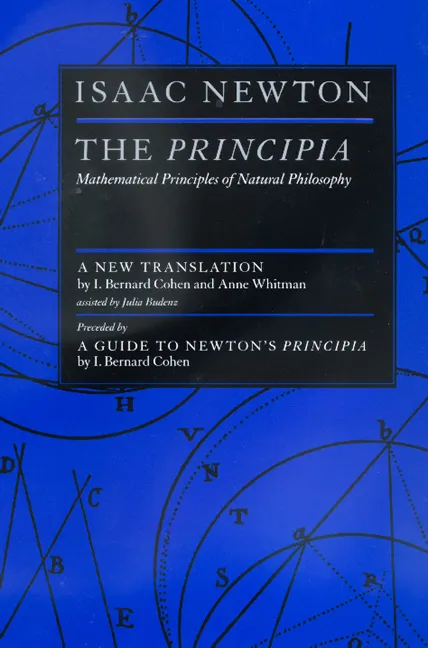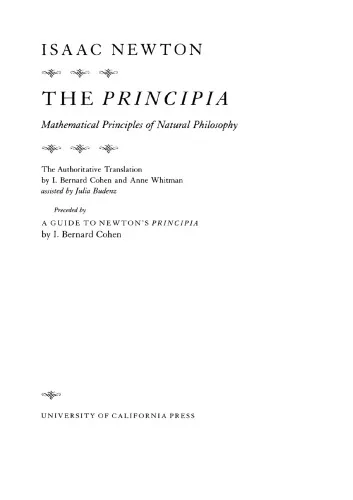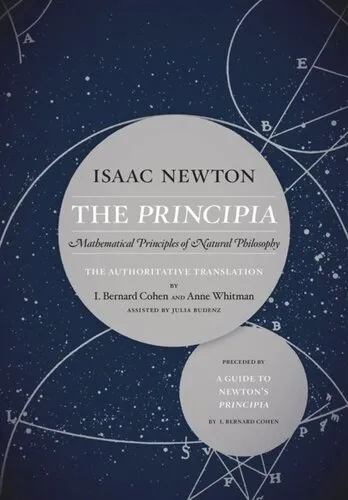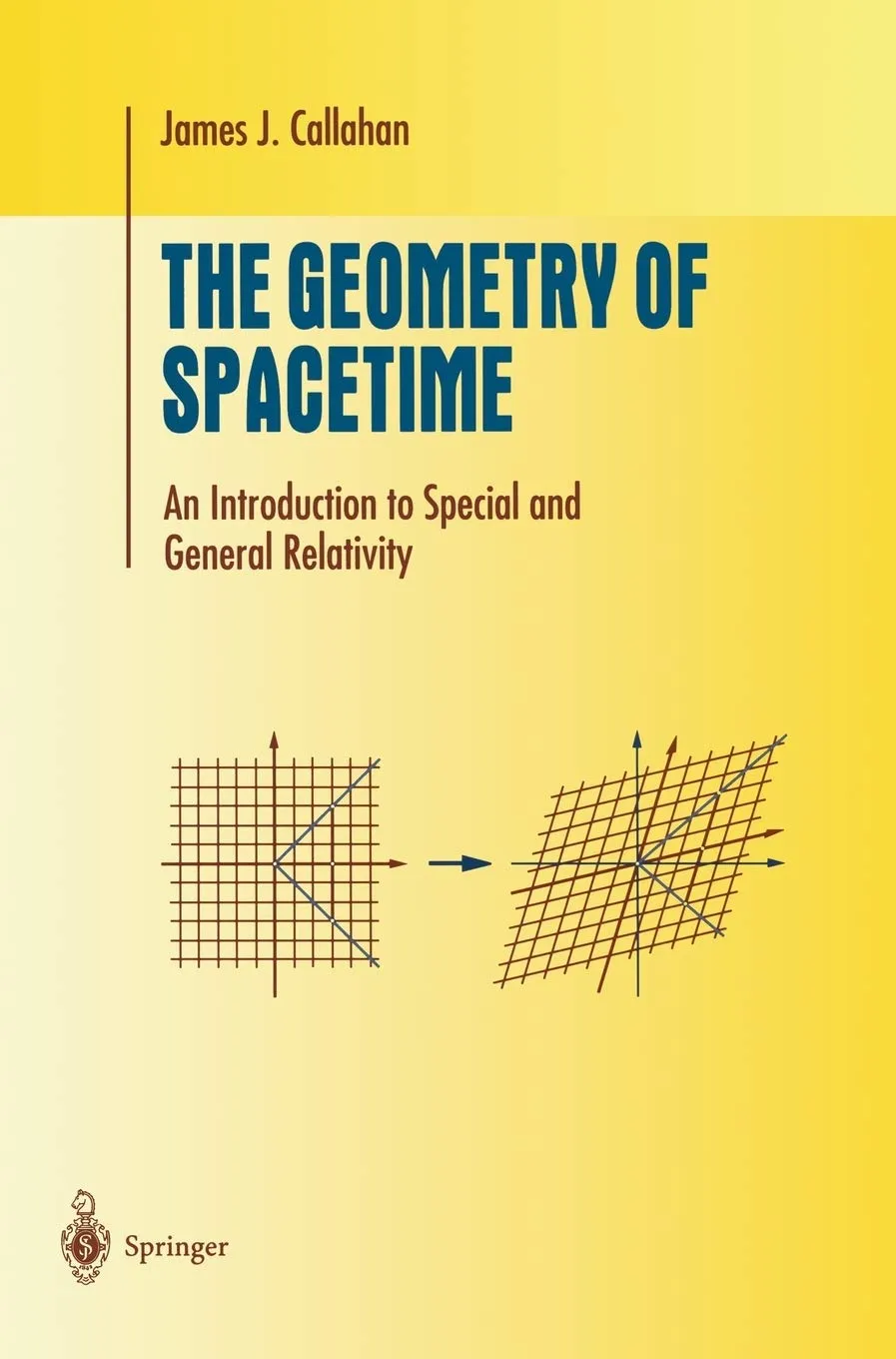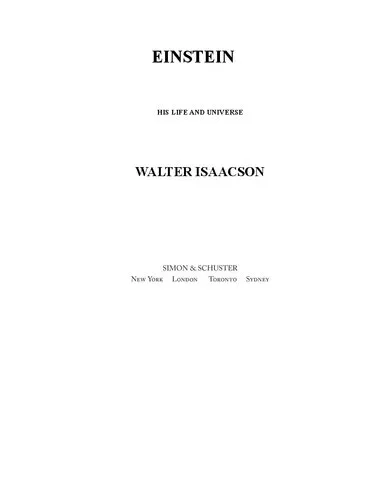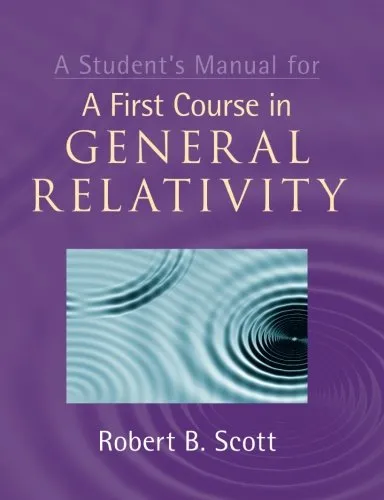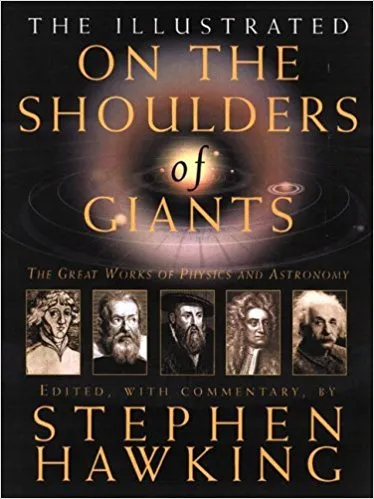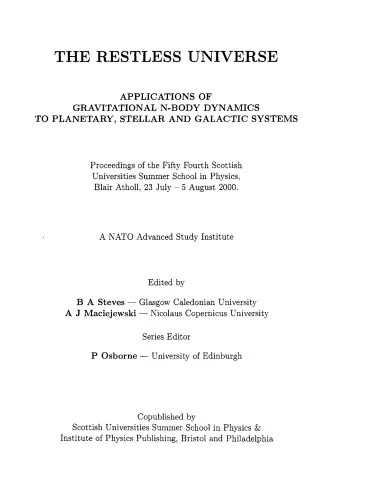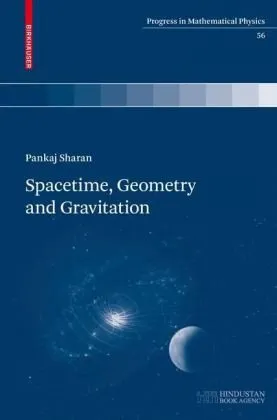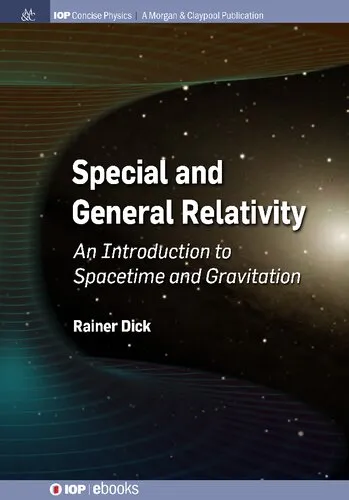Sir Isaac Newton’s Mathematical Principles of Natural Philosophy and His System of the World
4.6
بر اساس نظر کاربران

شما میتونید سوالاتتون در باره کتاب رو از هوش مصنوعیش بعد از ورود بپرسید
هر دانلود یا پرسش از هوش مصنوعی 2 امتیاز لازم دارد، برای بدست آوردن امتیاز رایگان، به صفحه ی راهنمای امتیازات سر بزنید و یک سری کار ارزشمند انجام بدینکتاب های مرتبط:
معرفی کتاب "Sir Isaac Newton’s Mathematical Principles of Natural Philosophy and His System of the World"
کتاب "Mathematical Principles of Natural Philosophy" که معمولاً با نام Principia شناخته میشود، شاهکار اسحاق نیوتن (Isaac Newton) است که برای نخستین بار در سال ۱۶۸۷ منتشر شد. این اثر به عنوان یکی از تأثیرگذارترین آثار علمی در تاریخ بشر شناخته شده و پایههای مکانیک کلاسیک و قوانین حرکت را بنا کرده است. همراه با قسمتی به نام "System of the World"، این کتاب نه تنها به فیزیک نوین بلکه به ریاضیات و فلسفه علمی جهت جدیدی بخشید.
خلاصهای از محتوای کتاب
کتاب شامل سه بخش اصلی است که هر یک نقش کلیدی در معرفی اصول علمی دارند:
- بخش اول: در این بخش، نیوتن پایههای قوانین حرکت را توضیح میدهد. این بخش شامل سه قانون معروف حرکت نیوتن است که اساس فیزیک کلاسیک را تشکیل میدهند. قانون اول درباره اینرسی است، قانون دوم رابطه میان نیرو، جرم و شتاب را ایجاد میکند و قانون سوم تأکید بر عمل و عکسالعمل دارد.
- بخش دوم: این بخش به رفتار اجسام در محیطهای مقاوم و غیرمقاوم پرداخته و محاسبات هیدرودینامیک را پوشش میدهد. نیوتن برای نخستین بار، حرکات سیالات و تأثیر مقاومت بر سرعت اجسام را مورد بحث قرار میدهد.
- بخش سوم: در این قسمت، مباحث گرانش و حرکات سیارات در سیستم خورشیدی مطرح میشود. نیوتن با استفاده از قوانین حرکت و روشهای هندسی خود، نظریه گرانش جهانی را معرفی میکند. او توضیح میدهد که چگونه اجسام در جهان به واسطه نیروهای گرانشی تحت تأثیر قرار گرفته و حرکت میکنند.
علاوه بر این سه بخش، نیوتن نظریه خود درباره سیستم جهانی را نیز مطرح میکند و جهان را همچون یک ماشین عظیم میبیند که توسط قوانین طبیعی هدایت میشود.
نکات کلیدی کتاب
- معرفی سه قانون بنیادی حرکت.
- ارائه نظریه گرانش جهانی که اساس دانش فیزیکی را تغییر داده است.
- توسعه ریاضیات نوین، شامل ایجاد حساب دیفرانسیل و انتگرال توسط نیوتن.
- ارائه یک مدل کلی برای توضیح حرکات اجرام آسمانی و کرات.
- بررسی عمیق رابطه میان نیروها، حرکت، و پویایی سیالات.
جملات معروف از کتاب
“Every action has an equal and opposite reaction.”
“If I have seen further it is by standing on the shoulders of giants.”
“Truth is ever to be found in simplicity, and not in the multiplicity and confusion of things.”
چرا این کتاب اهمیت دارد؟
این اثر یک نقطه عطف در تاریخ علم و دانش است. "Principia" نه تنها به وضوح قوانین اصلی حرکت و گرانش را تعریف میکند، بلکه پایهگذار فیزیک و نجوم نوین است. نیوتن در این کتاب، مفاهیم علمی را با دقت ریاضی ترکیب کرده است و یک مدل علمی جامع برای جهان تعریف میکند. علاوه بر تأثیر علمی، این کتاب الهامبخش دانشمندانی از نسلهای مختلف بوده و نقش اساسی در پیشرفت علم ایفا کرده است. در نتیجه، "Principia" یکی از بنیادیترین آثاری است که باعث فهم بهتر انسان نسبت به جهان اطرافش شده است.
Introduction to Sir Isaac Newton’s Mathematical Principles of Natural Philosophy and His System of the World
Isaac Newton’s Mathematical Principles of Natural Philosophy, commonly referred to as the Principia, is one of the most influential works in human thought and marks a monumental shift in our understanding of the natural world. First published in 1687, this groundbreaking text laid the foundation for classical mechanics, providing a comprehensive framework that explained both terrestrial and celestial phenomena. Newton's work united mathematics, physics, and astronomy into a cohesive system that has shaped modern science and technology. In this book, Newton encapsulates the laws of motion, universal gravitation, and the mathematical principles that govern the physical reality around us.
In addition to its scientific innovations, the Principia represents a remarkable intellectual achievement—even centuries after its publication. With the accompanying section The System of the World, Newton extends his mathematical principles to explain the motion of celestial bodies, giving rise to a deeper understanding of planetary motion that would profoundly impact observational astronomy, engineering, and navigation.
This annotated and translated version, meticulously edited by Andrew Motte in its 1729 English translation and later revised by mathematician Florian Cajori, ensures that the brilliance of Newton's insights is accessible to a wider audience. Below, we delve deeper into the contents of the book, its significance, and its continued relevance in the world today.
Detailed Summary of the Book
Newton’s Principia is divided into three major books, each addressing a crucial aspect of natural philosophy:
- Book I: The Motion of Bodies — This section defines Newton's famous Laws of Motion and explores how objects behave under forces. Through meticulous use of geometry and calculus (then called "fluxions"), Newton derives the principles that underpin nearly all classical mechanics.
- Book II: The Motion of Bodies in Resistant Mediums — Here, Newton examines motion through fluids (such as air and water), introducing concepts like drag and viscosity. His analysis extends to the study of oscillation, fluid dynamics, and the behavior of projectiles.
- Book III: The System of the World — This concluding part demonstrates how Newton’s laws govern planetary motion and universal gravitation. Using observational data from astronomers like Johannes Kepler, he explains the elliptical orbits of planets and the interactions between celestial bodies.
Throughout the text, Newton employs mathematical rigor to unify seemingly disparate phenomena, reinforcing the idea of a natural, predictable order in the universe.
Key Takeaways
Newton’s Principia offers several profound lessons that transcend its original scientific context:
- The Importance of Universal Laws: Newton’s Laws of Motion and Universal Gravitation are a testament to the idea that simple principles can explain complex systems.
- Mathematics as a Language of Nature: Newton demonstrated how mathematics could be used to describe and predict natural phenomena with extraordinary precision.
- Interdisciplinary Thinking: The book seamlessly combines mathematics, physics, and astronomy, underscoring the power of interdisciplinary approaches to problem-solving.
- Human Potential for Discovery: The Principia reflects the human ability to grasp fundamental truths about the universe through reason and observation.
Famous Quotes from the Book
While Newton’s writing is primarily mathematical, several passages provide insight into the philosophy underpinning his work:
- “To any action there is always an opposite and equal reaction.”
- “Nature is pleased with simplicity. And nature is no dummy.”
- “I frame no hypotheses; for whatever is not deduced from the phenomena is to be called a hypothesis.”
- “If I have seen further, it is by standing on the shoulders of giants.”
Why This Book Matters
The Principia not only revolutionized science but also laid the groundwork for many technological advancements we enjoy today. By elucidating principles of motion and gravitation, Newton provided tools that enabled the development of disciplines such as engineering, aerospace science, and modern physics.
Beyond its scientific impact, the book exemplifies the power of intellectual inquiry and meticulous reasoning. Its influence extends to philosophy, as Newton’s work inspired Enlightenment thinkers who applied the principles of reason and evidence to realms beyond science.
Ultimately, Mathematical Principles of Natural Philosophy is much more than a scientific text—it is a masterpiece that embodies the human quest for knowledge and our enduring desire to understand the universe.
In opening this timeless work, the reader steps into the mind of one of history’s greatest thinkers, embarking on a journey to uncover the fundamental truths that shape our world and beyond.
دانلود رایگان مستقیم
شما میتونید سوالاتتون در باره کتاب رو از هوش مصنوعیش بعد از ورود بپرسید
دسترسی به کتابها از طریق پلتفرمهای قانونی و کتابخانههای عمومی نه تنها از حقوق نویسندگان و ناشران حمایت میکند، بلکه به پایداری فرهنگ کتابخوانی نیز کمک میرساند. پیش از دانلود، لحظهای به بررسی این گزینهها فکر کنید.
این کتاب رو در پلتفرم های دیگه ببینید
WorldCat به شما کمک میکنه تا کتاب ها رو در کتابخانه های سراسر دنیا پیدا کنید
امتیازها، نظرات تخصصی و صحبت ها درباره کتاب را در Goodreads ببینید
کتابهای کمیاب یا دست دوم را در AbeBooks پیدا کنید و بخرید
1563
بازدید4.6
امتیاز0
نظر98%
رضایتنظرات:
4.6
بر اساس 0 نظر کاربران
Questions & Answers
Ask questions about this book or help others by answering
No questions yet. Be the first to ask!


